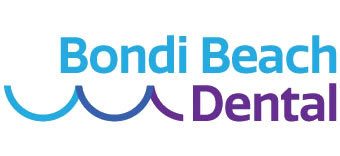If you have ever experienced throbbing tooth pain that comes and goes, you know that it can be quite an uncomfortable sensation. The feeling of a dull ache that lingers on for hours or days, intensifying and dissipating spontaneously, can be maddening. But what exactly is causing this type of pain? It could be any number of things, from a cavity to a sinus infection. Let’s take a look at some of the possible causes.
What is Throbbing Tooth Pain?
There are several types of toothache, such as a dull ache that continues over time or a throbbing pain which is more intermittent. This type of tooth pain feels like a pulsation similar to a heartbeat.
Throbbing tooth pain is a sharp, aching sensation that can be intermittent or continuous. Patients often report feeling this persistent and pulsing discomfort in their teeth or jaw. By recognising this sensation quickly, you can prevent further damage to your teeth with proper treatment.
Causes of Throbbing Tooth Pain
Possible causes of throbbing tooth pain include:
Tooth decay or cavity
If you’re experiencing throbbing tooth pain that comes and goes, it’s likely due to some sort of dental issue, such as tooth decay or a cavity. Cavities are caused by bacteria eating away at the enamel on your teeth over time. This can cause sensitivity when eating or drinking hot and cold foods and beverages, as well as the occasional bout of throbbing pain. If left untreated, cavities can lead to more severe issues, such as gum disease or even tooth loss.
Advanced gum disease
Gum disease is another common cause of throbbing tooth pain that comes and goes. It is caused by plaque buildup along the gum line, which then leads to inflammation and swelling around the affected area. This can cause mild discomfort when brushing your teeth but will usually become more intense when left untreated for long periods of time. Gum disease can also lead to other issues, such as bone loss in the jaw or even tooth loss, if not treated properly.
Sinus infection
A sinus infection may also be responsible for your throbbing toothache, particularly if you’re experiencing pain in multiple teeth rather than just one specific area (this is because infections tend to spread). A sinus infection can cause inflammation in the nerves surrounding your jaw, leading to discomfort and/or pain when chewing food, yawning, or even speaking in some cases. When left untreated, sinus infections can lead to more serious issues, such as chronic headaches or facial swelling.
Enamel loss / Worn out teeth
If you’ve been grinding your teeth at night or clenching them during the day, you may be subject to enamel loss and/or worn-out teeth. This can cause sensitive teeth and lead to a recurring throbbing pain that comes and goes.
Tooth nerve damage
Nerve damage is another possible cause of throbbing tooth pain. This can occur due to an injury to the dental pulp, such as a broken or chipped tooth, or even wear and tear over time due to teeth grinding or clenching. Nerve damage can also manifest itself in the form of sensitivity, numbness or dental abscess in the surrounding teeth, as well as a throbbing pain that comes and goes.
Cracked teeth
A broken tooth can also cause throbbing tooth pain that comes and goes. This is due to the fact that tooth fracture allows bacteria to enter the inner layers of the infected tooth, causing inflammation and swelling. The resulting pressure on the nerve can lead to sharp, pulsing pain when eating or drinking hot or cold items.
Wisdom tooth eruption
Wisdom tooth eruption can also cause throbbing tooth pain that comes and goes. Generally, third molars appear between the ages of 17 and 21, often causing a lot of distress. As wisdom teeth come in, they can push against other teeth, leading to pain when chewing or even just talking.
Periodontal disease
Periodontal disease can also lead to throbbing tooth pain that comes and goes. This type of tooth infection affects the gums, leading to inflammation and swelling in the area. If left untreated, this can cause discomfort when brushing your teeth or even just eating food.
If you’re experiencing this kind of pain, it’s crucial to see a dentist as soon as possible to discuss ways to get relief.
Identifying Specific Areas of Pain

Practising proper oral hygiene, such as keeping up with regular brushing and flossing, can sometimes eliminate mild symptoms of tooth pain, but sometimes its cause remains a mystery. With just a few simple steps, you can easily assess exactly where it hurts, which can point you in the right direction for treatment.
Diagnosing the Cause of Throbbing Tooth Pain
When dealing with throbbing tooth pain, it is crucial to accurately diagnose the cause of the pain. If you are struggling with discomfort, our dentist can provide a comprehensive examination and evaluation in order to determine the root cause.
A thorough dental assessment may include X-rays and a review of your medical history, as well as a consultation about relieving or preventing future issues. By taking proactive steps to get an accurate diagnosis, you can ensure thoughtful and responsible care for your teeth.
Treatment Options for Relief from Throbbing Tooth Pain
Prescription Medication
In more serious cases, our dentist may prescribe a stronger medication to help alleviate the pain. These medications will usually be in the form of antibiotics or anti-inflammatory drugs that can reduce swelling and reduce discomfort caused by infection or inflammation.
Dental Treatment
Finally, if your throbbing tooth pain is due to a dental issue, such as a cavity or cracked tooth, our dentist may suggest treatment to repair the damage and alleviate the pain. This could include fillings, crowns, root canal treatment, or even extractions in more severe cases. It’s important to determine the exact cause of your throbbing toothache in order to decide on the best course of action.
At Home Remedies
In addition to a dentist’s prescribed plan of action, there are some at-home remedies that can help alleviate throbbing tooth pain. For example:
Cold compress
Using a cold or warm compress by applying it to the affected area can help reduce swelling and ease discomfort.
Clove oil
Clove oil is one of the most popular home remedies for tooth pain due to its antiseptic and numbing properties.
Salt water rinse
Rinsing your mouth with salt water can help reduce inflammation and provide some relief from the throbbing pain.
Over-the-counter medication
If you’re experiencing minor discomfort or pain, an over-the-counter medication, such as ibuprofen or acetaminophen may provide some relief. These medications can reduce inflammation and dull the sensation of throbbing tooth pain.
Conclusion
Experiencing tooth pain can be irritating; that’s why it’s important to visit your dentist right away if you’re experiencing any kind of persistent discomfort or severe pain so they can identify exactly what’s causing it and provide treatment accordingly.
To prevent any future pain or discomfort from occurring, be sure to maintain your oral health by following proper oral hygiene practices and attending regular dental check-ups.
If you’re experiencing throbbing tooth pain that comes and goes, don’t hesitate to contact us! At Bondi Beach Dental, we provide comprehensive dental care and knowledgeable advice to help you find relief from throbbing tooth pain. Schedule an appointment with us today, so we can identify the root cause of your discomfort and provide you with the best possible treatment for your needs.
Sources
Toothache
https://medlineplus.gov/ency/article/003067.htm
Diagnosis and treatment of abnormal dental pain
https://www.ncbi.nlm.nih.gov/pmc/articles/PMC5564113/
What to know about throbbing tooth pain
https://www.medicalnewstoday.com/articles/throbbing-tooth-pain
Toothache and swelling
https://www.healthdirect.gov.au/toothache-and-swelling
Toothache
https://www.nidirect.gov.uk/conditions/toothache


